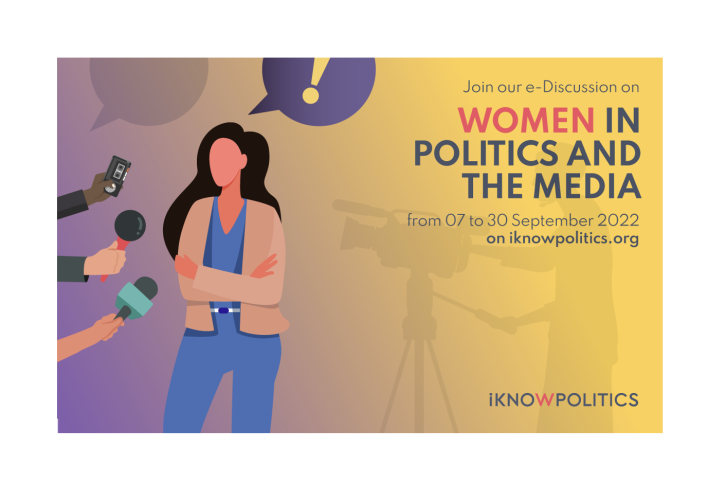e-Discussion on Women in Politics and the Media
Women in politics face biased, sexist, and discriminatory media treatment. When reporters cover women leaders, they often use terms that emphasize women's traditional roles and focus on their appearance. They perpetuate stereotypes of women politicians as weak, indecisive, and emotional.
A study by the Inter-parliamentary Union on violence against women MPs reports that the media can perpetuate rumors and misogynistic behavior. The study’s survey revealed that 27.3 per cent of the participating women MPs said that traditional media had shared highly contemptuous or sexually charged images or comments about them. The percentage rose to 41.8 per cent when they were asked about photos or comments disseminated through social media.
Globally, women in politics, particularly women of color, experience overwhelming levels of abuse and gendered disinformation campaigns, which traditional and social media often fuel and perpetuate. With the purpose of discrediting, delegitimizing, and silencing women in politics, studies have shown that women are often discouraged and dissuaded from getting involved in politics because of gendered media reporting.
This e-Discussion seeks to raise awareness and collect experiences and knowledge on gender differences in political media coverage, its impact on women’s political participation and representation, as well as gather good practices on ways to ensure media portrayals of women in politics are fair and unbiased.
You are invited to join the e-Discussion from 7 to 30 September 2022.
Your submission will contribute to the elaboration of a report that will augment the knowledge base available on the topic. The guiding questions are:
- Are women politicians less visible or covered differently than men in political news coverage in your country? Please share data, if available.
- What can lawmakers, governments, and civil society do to ensure media outlets/journalists deliver fair and balanced media coverage of women and men in public life?
- With sexist traditional media coverage disseminated on social media, women in politics are exposed to vicious online attacks and abuse by often anonymous perpetrators. What can social media companies, media outlets, governments, lawmakers, and other decision-makers do to put an end to the crisis of online violence against women in politics?
Submit your answers by sending an email to connect@iknowpolitics.org or post them directly here.





